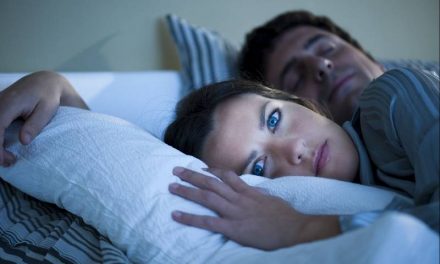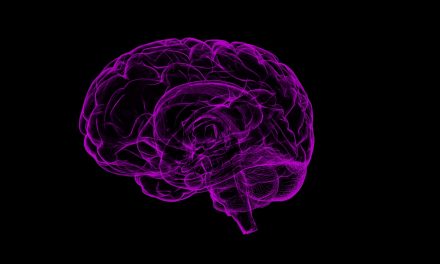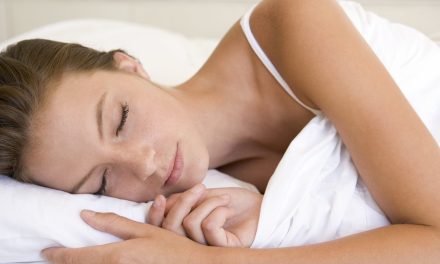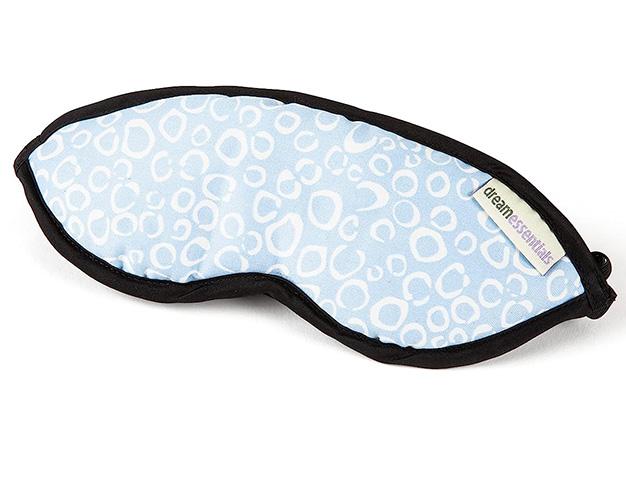Table of Contents
Why Do We Need Sleep?
Has your sleep routine been disrupted as a result of pandemic restrictions that are beyond your control? It can be challenging to stay focused and perform at one hundred percent when working from home and simultaneously caring for young children or elderly family members.
While people strive for productivity, it is critical to recognize the importance of health, particularly of sleep health.
A good night’s sleep is important for optimal mind and body function. Experts deem sleep to be as essential for a healthy lifestyle as a balanced diet and regular exercise. Sleep is a body’s way of recharging, and the lack of it can lead to fatigue, lack of concentration, and forgetfulness. Sleep deprivation may harm your immune system and mental health.
Whereas an adequate amount of sleep will leave your mind and body feeling refreshed and alert, the recommended hours of sleep vary amongst individuals. According to the Public Health Agency of Canada (PHAC), an adult requires between seven to nine hours of sleep. It is recommended that school-aged children and teenagers get nine to eleven hours of sleep per night.
However, according to PHAC statistics, 1 in 4 adults aged eighteen to thirty-four, and 1 in 3 adults aged thirty-four to sixty-five are not getting enough sleep, thereby lowering their quality of life. One cannot neglect the importance of sleep in improving one’s well-being and quality of life.
This article explains why we sleep and why we need sleep. You will also get advice on how to improve your sleep habits.
Why do we Sleep?
According to research, the sleep-wake cycle is determined by the various neurotransmitters acting on distinct groupings of nerve cells in the brain. Neurotransmitters such as serotonin and norepinephrine are produced by neurons in the brainstem, which links the brain to the spinal cord, and keeps some portions of the brain active while we are awake. When we fall asleep, neurons shut down the signalling of these neurotransmitters. At this point, other neurotransmitters, such as Adenosine, start signalling from the brainstem. Adenosine is a nerve signalling chemical that builds up in your blood when you are awake and produces tiredness. While you sleep, this chemical steadily degrades until you have completed your sleep cycle.
Stages of Sleep
There are two basic types of sleep: rapid eye movement (REM) sleep and non-REM sleep, which has four different phases. Stages of sleep advance in a cycle from stage 1 to REM sleep, and then the cycle repeats itself with Stage 1. Stage 2 sleep accounts for nearly half of all sleep time in children and adults, 20% in REM sleep, and the remaining 30% in other states. Infants, on the other hand, spend roughly half of their time sleeping in the REM stage. Each sleep stage is associated with specific brain waves and neuronal activity.
Stage 1 non-REM sleep
The transition from wakefulness to sleep is called Stage 1 non-REM sleep. In this stage, you can easily be awoken. Your heartbeat, breathing, and eye movements slow down during this brief phase of relatively light sleep, lasting a few minutes. During this stage, your muscles relax and may twitch periodically; your brain waves begin to slow down from daytime levels. When people wake up from stage 1 non-REM sleep, they retain fragmentary visual images from dreams. Many people also get hypnic myoclonia, or hypnic jerks, which are rapid muscle contractions that are often followed by a feeling of falling. These abrupt motions resemble the “jump” we make when startled.
Stage 2 non-REM Sleep
Stage 2 non-REM sleep is a light sleep stage that precedes deeper sleep. Your breathing and heart rate slow, and your muscles relax even more. Your body temperature drops, and your eye movements come to a halt. Brain activity and brain waves slow down. At this stage, transient bursts of electrical activity take place. Stage 2 sleep takes up more time in your sleep cycles than the previous sleep stages.
Stage 3 and 4 non-REM Sleep
Stage 3 and 4 non-REM sleep is the phase of deep sleep that is required to wake up feeling rested and refreshed. It happens more frequently in the first portion of the night. Stages 3 and 4 are distinguished by the kind of brain waves that are produced. Stage 3 non-REM sleep produces smaller, faster waves, while stage 4 non-REM sleep induces extremely slow brain waves called delta waves. During non-REM sleep, your heartbeat and breathing slow down to their lowest levels. In this stage, it is increasingly difficult for you to wake up because your muscles are relaxed and brain waves slow down even further. People who are woken up from a deep sleep typically feel foggy and disoriented for at least thirty minutes.
REM Sleep
About 90 minutes after falling asleep, REM sleep begins. Behind closed eyelids, your eyes move rapidly from side to side. The activity of mixed frequency brain waves approaches that of alertness. Your heart rate and blood pressure rise to near-waking levels, and your breathing becomes quicker and erratic. The majority of your dreams happen during REM sleep, although some can happen during non-REM sleep as well. The muscles in your arms and legs become temporarily paralyzed, preventing you from acting out your dreams. As you become older, you spend less time in REM sleep. Both non-REM and REM sleep is required for memory consolidation.
The Circadian Rhythm and the Anatomy of Sleep
The suprachiasmatic nucleus (SCN) is a cluster of cells that receives and collects information regarding light exposure to the eyes. SCN processes the collected information into a light-day cycle and then matches it to the body’s circadian rhythm.
The brain stem controls the involuntary functions of your body and sends signals to the muscles telling them to relax. As a result, your body is not tensed up. At this stage of sleep, you have little voluntary control over your body’s actions.
The thalamus sends sensory information to the cerebral cortex, forming short-term and long-term memory. However, during stages of sleep, the thalamus shuts down and tunes the body out of the external world, relaxing it accordingly. The thalamus becomes somewhat active and sends visual and auditory information to the cortex. The cortex is the area of the brain where dreams are produced. The relaxed state of the thalamus and cerebral cortex is the reason why dreams leave faint memories shortly after waking.
In the absence of light, The pineal gland receives indicators from the SCN (suprachiasmatic nucleus) and increases the release of melatonin, which puts your body to sleep. Scientists believe that the fluctuation of melatonin levels during the day syncs the circadian rhythm and the external cycle of light and darkness.
RECOMMENDED HOURS OF SLEEP
People need slightly less sleep as they age. However, the importance of sleep does not decrease with age.
- Newborns (0-3 months) require 14-17 hours of sleep (including naps).
- Babies that are a bit older (4-11 months) need 12-15 hours of sleep.
- Children between 1 and 2 years of age need around 11-14 hours of sleep every night.
- Kids 3-5 years should be getting 10-13 hours of sleep each night.
- Older kids that are 6-13 years old should be sleeping 9-11 hours each night.
- Teenagers (14-17 years) should get about 8-10 hours of sleep.
- Adults (18-64) should sleep for 7-9 hours,
- Older adults (65+) need (7-8 hours) of sleep per night.
Sleep is important because it helps your body recharge. This will leave you refreshed and alert the next day. You also need to sleep in order for your body to function properly.
Sleep Deprivation
Sleep deprivation is described as when you are unable to get the minimum recommended amount of sleep. Insufficient sleep has a negative impact on your body. According to experts, a feeling of tiredness during the day, even amid mundane chores, indicated that you haven’t had enough sleep.
If you fall asleep within five minutes of lying down, you are likely suffering from serious sleep deprivation, if not a sleep disorder. Microsleeping, or very brief periods of sleep in someone who is otherwise awake, is another sign of sleep deprivation. Many people are unaware that they are having microsleeps. In western industrialized societies, the practice of “burning the candle at both ends” has resulted in widespread sleep deprivation.
Dangers of Sleep Deprivation
According to American Sleep Association, sleep deprivation comes with risks including but not limited to:
- Diabetes: Short-term sleep deprivation is now thought to impair glucose processing, making people more likely to acquire Type 2 Diabetes than those who obtain eight hours of sleep.
- Suppressed growth: According to a 1999 study, sleep deprivation resulted in lower cortisol secretion the next day as a result of greater slow-wave sleep, suppressing growth hormones.
- Poor working memory and attention: Aside from the numerous medical implications of inadequate sleep, one of the most significant repercussions of sleep deprivation is impairments in working memory and attention. From missing words or sentences when taking notes to skipping crucial ingredients while cooking, errors in typical mundane activities can have alarming consequences. It appears that performing attention-demanding tasks successfully is directly proportional to the number of hours a person sleeps each night. This proportion deteriorates as the number of hours of sleep deprivation increases. Working memory is assessed using methods such as choice-reaction time exercises.
Why Do We Sleep?
Sleep importance: essential for A well-functioning Nervous System
It becomes tiring and difficult for one to concentrate with little to no sleep. Sleep deprivation affects one’s cognitive and physical performance, as well as the capacity to complete numerical calculations. Hallucinations and mood changes may arise if sleep deprivation continues. Sleep, according to some experts, allows neurons that are active while we are awake to shut down and repair themselves. Neurons may get so low in energy or polluted with byproducts of typical cellular activity if you experience sleep deprivation. Neurons may begin to malfunction if they do not get enough sleep. Sleep may also provide an opportunity for the brain to exercise critical neural connections that would otherwise deteriorate due to inactivity.
Sleep is essential for children’s growth and development
In children and young adults, deep sleep correlates with the release of growth hormones. During deep sleep, many of the body’s cells boost protein production while decreasing protein breakdown. Deep sleep may genuinely be “beautiful sleep,” because proteins are required for cell growth and the repair of damage caused by stress and UV light.
A study in rats also showed that certain nerve-signalling patterns that were generated during the day were repeated during deep sleep. This pattern repetition may help encode memories and improve learning.
Why do we sleep?
Studies like these help scientists and the general public understand how essential undisturbed sleep is for a sound mind and body.
The importance of Sleep on Our Health
Sleep and sleep-related issues affect practically every branch of medicine and play a part in a wide range of human illnesses. Problems like stroke and asthma episodes, for example, are more common at night and early in the morning, possibly due to changes in hormones, heart rate, and other sleep-related factors. Sleep has a complex effect on various types of epilepsy. Deep sleep appears to facilitate the spread of seizures that originate in one section of the brain, but REM sleep appears to help prevent seizures from spreading to other parts of the brain. In persons with certain kinds of epilepsy, sleep deprivation can also cause seizures.
Sleep provides Immunity Boost
A combination of circadian and sleep-related factors causes the immune system to show dynamic variation over the course of a normal sleep-wake cycle. Immune cells are maximized early in the evening and gradually decline until they level off in the morning.
Viral response studies in humans have shown that even short periods of sleep deprivation can affect immunity. Subjects who slept 4 hours per night for four nights before being inoculated with influenza virus had a lower antibody response than those who got 9 hours of sleep for the same period. Sleep may also conserve the body’s energy.
Better sleep leads to Better Mental Health
Sleep and mental health are inextricably linked. Sleep deprivation has an impact on your mental and emotional well-being. People who have mental health issues are more likely to suffer from insomnia and other sleep disorders.
One study of over 25,000 survey participants with chronic insomnia found that these individuals are at a higher risk of developing an anxiety disorder.
A study published in the Scientific American, a peer-reviewed journal, claims that after controlling for background variables such as family status and income, each lost hour of sleep in the teenagers was associated with a 38% increase in the odds of feeling sad and hopeless. Each hour of sleep also coincided with a 42 percent rise in those considering suicide, a 58% increase in suicide attempts and a 23% increase in substance abuse.
As seen in the results of this study, the detrimental effects of sleep deprivation help us understand why sleep is important.
Other Benefits of Sleep
Good sleep leads to Increased Productivity
Prioritizing work or school is frequently associated with having a good, productivity-oriented mindset. However, in certain cases when productivity is held in such high regard, the time that is devoted to getting undisturbed and sufficient sleep can suffer.
In competitive environments, sleep deprivation is something students or colleagues can boast about. In doing this, they falsely imply that the extra time that they stay awake increases their productivity. When sleep is neglected, however, productivity and performance suffer.
According to the American Academy of Sleep Medicine, those who reported getting 5 to 6 hours of sleep experienced 19 percent more productivity loss, and those who got less than 5 hours of sleep experienced 29 percent more productivity loss when compared to those that regularly got 7 to 8 hours of sleep
In another study, researchers found that staying awake 17.74–19.65 hours per 24 hours (i.e., after waking) had similar detrimental effects to having a blood alcohol concentration (BAC) of 0.1 percent.
Good sleep leads to Increased Concentration
Sleepiness impedes your thought process. Scientists measuring sleepiness claim sleep deprivation reduces attentiveness and concentration. Because it’s more difficult to concentrate and pay attention when you are sleep-deprived, you’re more likely to become confused. This makes it difficult for you to complete jobs that need logical reasoning or complicated cognition.
Sleepiness lowers judgment as well. Decision-making is more challenging since you are unable to accurately assess situations and choose the appropriate approach.
Good sleep leads to optimal athletic performance
A Stanford study of men’s basketball players who slept for 10 hours per night discovered various benefits. In both half-court and full-court sprints, the players were faster. For both free throws and three-point shots, their shooting improved by at least 9%. The sportsmen also stated that their physical and emotional health had improved.
Sleep deprivation affects one’s mental ability to react swiftly and think coherently. Sleep-deprived athletes are more inclined to make poor decisions and take unnecessary risks. In addition to irritation, sleep deprivation raises the risk of anxiety and despair.
Improving Sleep Habits
Good sleep habits (also known as “sleep hygiene”) can help improve your general health.
The CDC recommends the following habits to improve your sleep :
- Consistency is key: go to bed and wake up at the same time every night and every morning, including on weekends.
- Remove all electronic devices from the bedroom, including televisions, computers, and smartphones.
- Before going to bed, avoid large meals, caffeine, and alcohol.
- Make an effort to exercise regularly. Physical activity during the day can make it easier to fall asleep at night.
- Ensure that your bedroom is quiet, dark, relaxing, and at a pleasant temperature. Comfortable bedding will help you fall asleep faster.
Sleep is not simply a luxury activity or downtime. Sleep is an important aspect of a healthy lifestyle. It increases your productivity, learning, memory, insight and health.
FAQ
Can sleep deprivation cause nausea?
Yes, according to the CDC, sleep deprivation increases your risk for gastrointestinal symptoms such as abdominal pain, gas, diarrhea, constipation, nausea, and vomiting.
How does sleep affect weight loss?
Weight loss is easier to achieve when you get adequate sleep. Studies show that sleep-deprived individuals have an increased appetite and a higher daily calorie intake. When you don’t get enough sleep, the body makes more ghrelin and less leptin, leaving you hungry and increasing your appetite.
In which sleep stage do you dream?
Most dreaming occurs during REM sleep.


















